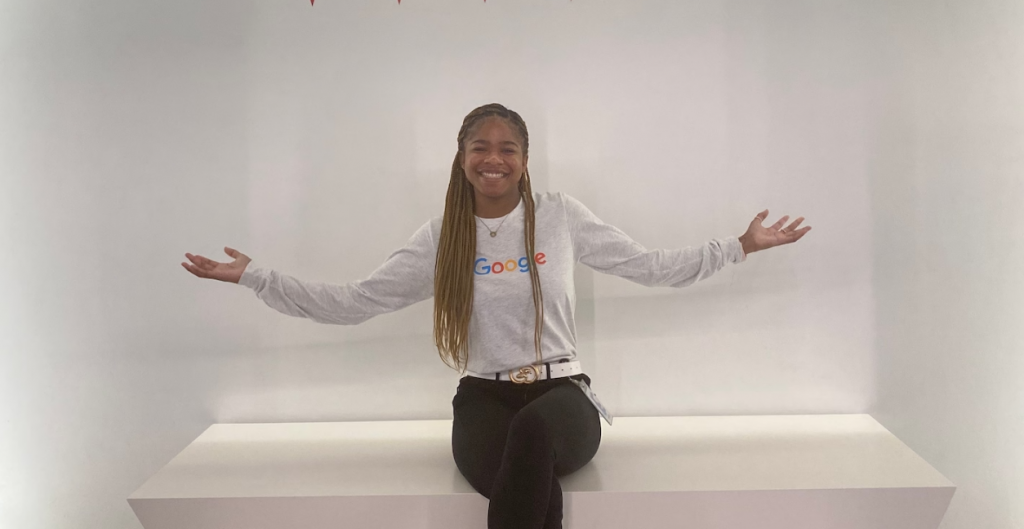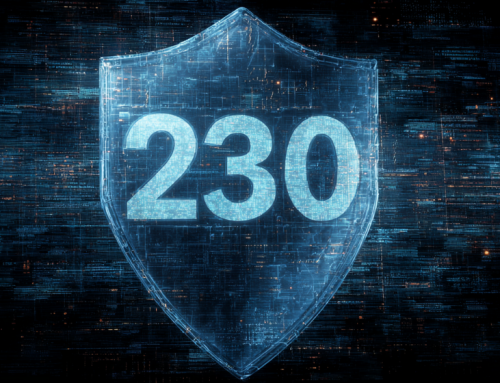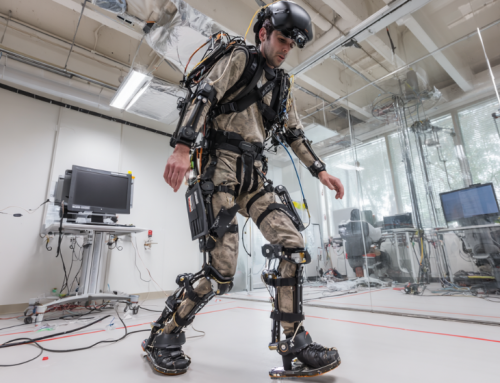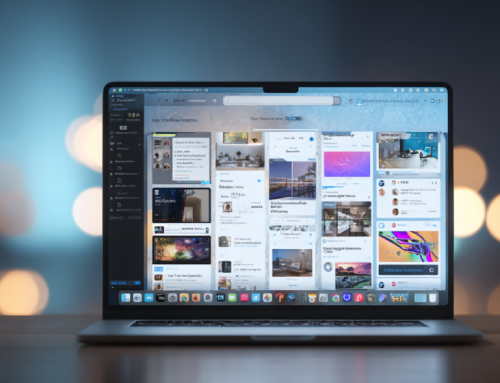
Naomi Davis, a member of Gen Z, which is considered the first all-digital generation, already has AI skills and will be working for Google. (Source: Naomi Davis)
WaPo: AI Excites Generation Z with Work, Life Possibilities
In what has to be a most unusual article about children and computers, thewashigtonpost.com found a reason to be positive about our digitally raised kids.
The group called Gen Z was born between 1997 and 2012. While many parents spent a lot of time trying to keep previous generations of kids off computers, it appears that Gen Z is not only good on digital devices of all shapes and sizes, but they have come to expect their lives to be filled with them.
Gen Z made up more than 13 percent of the civilian labor force last year, according to data from the U.S. Bureau of Labor Statistics. And that number is only expected to grow as the youngest of Gen Z, also known as Zoomers, are still several years from joining the workforce.
The article talked with teachers and students from economics departments, coding facilities, and more. Turns out that Zoomers are all on board with ChaptGPT and other generative AI like Midjourney and have pretty much mastered it in a very short time.
Since they were tykes, Zoomers have been exposed to digital devices and services — the oldest of the bunch was about a year old when Google launched. As a result, they tend to be open to exploring new technologies, said Shaun Pichler, professor of management at the College of Business and Economics at California State University at Fullerton.
“They’re the first digital-native generation,” he said, adding that many of the students grew up communicating digitally through text and social media. “They’re used to using tech day in and day out.”
Encouraged On Campus
Zoomers have relied on the chatbot ChatGPT from OpenAI to help write cover letters, edit essays, formulate or clarify ideas, check code, and even help with their finances. And some universities make generative AI part of their curriculum rather than banning it because of a fear of cheating.
That was the case for students who took Kyle Jensen’s writing class at the Tempe campus of Arizona State University last semester. Jensen, also the director of writing programs, said he had been exploring generative AI before ChatGPT debuted in November. For his class, Jenson wanted to educate his students and learn how they feel about and might use the tech.
“I thought this was an opportunity to teach AI literacy,” he said. “Let’s use this opportunity to think about different ways of applying AI and where it might be headed in the future.”
Many in this first class of students realized quickly how much more helpful chatbot tech can be in helping improve their writing skills and thought processes.
“It helped me identify my voice as a writer better and how it differs from the AI,” said Vasquez Bueno, a former computer science major who is considering a user-experience writing career when she graduates next year. “I feel more comfortable using it for future projects.
The article cites the positive results so far with the introduction of this far more sophisticated AI.
Nice to have some optimism being proven out in daily usage of AI and how it will simply become more and more a part of our regular everyday lives. But there are also some hard truths contained in this piece. Zoomers aren’t ignoring possible harm, despite their excitement. Some say they are worried about the implications of AI, including its ability to spread misinformation, make people lazy to learn, raise the bar for entry-level jobs, and become a way for employers to cut costs — even if it means lowering the quality of work.
But AI can check most if not all boxes when it comes to improving any business anywhere in the world. Zoomers will likely be leading the way.
read more at washingtonpost.com







Leave A Comment